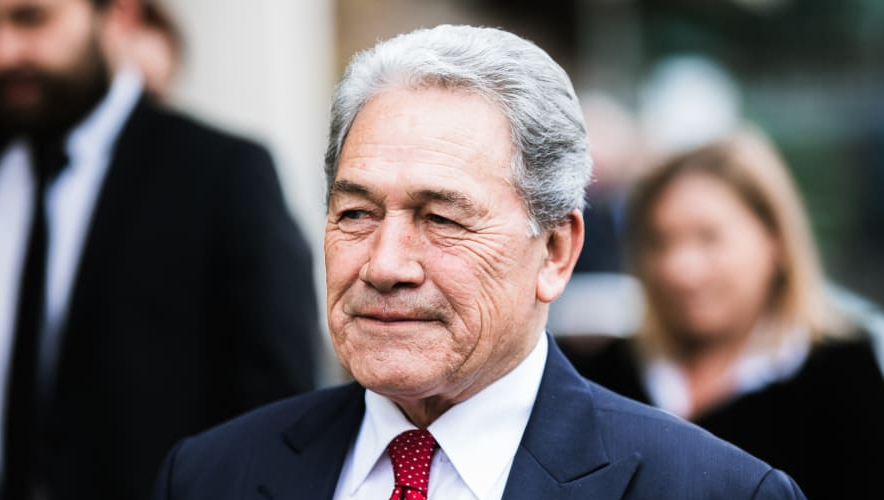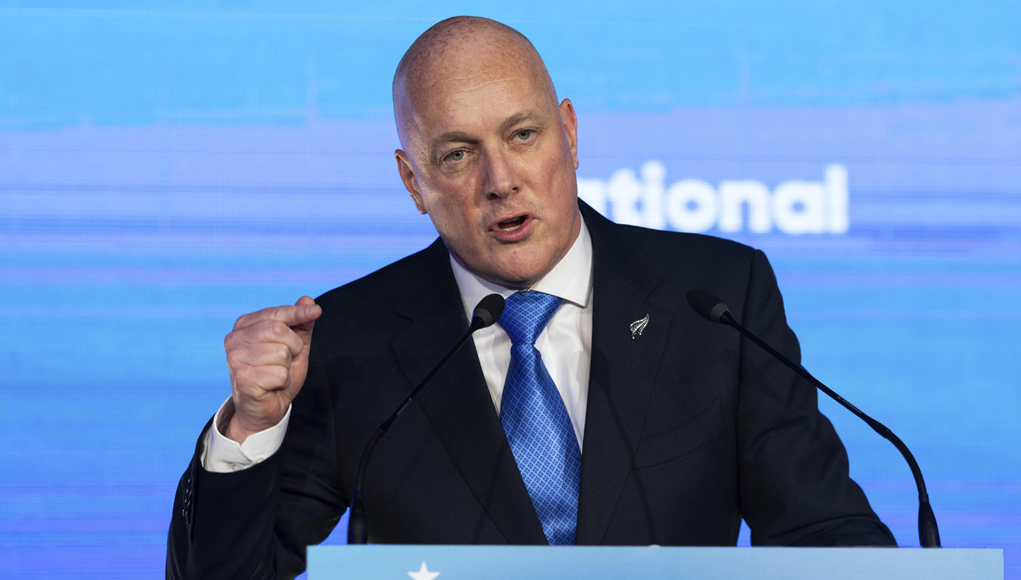Strange Mixture of Ethno-Nationalism And Soviet-Style Authoritarianism Is A Very Real Risk.
The proportional representation electoral system in New Zealand encourages the formation of coalition governments. The usual outcome is a coalition featuring one of the traditional major parties, the leftist Labour party or the centrist National party, with another party, perhaps plus other sympathetic parties providing confidence and supply from outside government.
Only twice in the 27 years of proportional representation has this scenario not occurred. In 2020, where an electorate inexplicably grateful for the Covid response handed Jacinda Ardern’s Labour party an unprecedented absolute majority, and 2023 when the centrist National party, the populist NZ First and libertarian Act parties formed a three-way coalition. Members of all three parties will hold ministerial warrants inside and outside cabinet, and a comprehensive policy platform has been agreed amongst them.
The libertarian influence over the new government is a lot less than it could have been
The essential objective of the policy platform is recovery from the devastation wrought over the last six years by the Labour-led government. Every key economic and social metric is in the red, core Crown debt has tripled, infrastructure is crumbling, cost of living and inflation are crises, Stalinesque centralisation of devolved services such as health and tertiary education have been eye-wateringly expensive failures, and democracy at all levels of government has largely been supplanted by the euphemistically named “co-governance” of public services: Maori prima inter pares Apartheid.
In six short years the far-left ideologues of the Labour party, cheered on by their fellow travellers in the corrupted media, have taken NZ’s “Rockstar Economy” to the point where the country is teetering on the verge of middle-income instead of first world nationhood, and a society where civil unrest between a coalition government seeking to reassert democratic norms and a significant proportion of the populace dedicated to replacing democracy with a strange mixture of ethno-nationalism and Soviet-style authoritarianism is a very real risk.
The proportional representation electoral system in New Zealand encourages the
formation of coalition governments.
The hope of the Act and NZ First constituencies (and to a lesser extent, their National party peers) is that the two minor coalition partners can provide National with some much needed backbone. Traditionally a centre-right party representative of rural interests, business and exporters, National today has devolved into the blandest of beige centrist parties, pitching themselves as more fiscally prudent and better at delivery than their Labour party counterparts. Whilst accurate, these are not the radical characteristics needed by the incoming coalition to reverse the calamity of six years of unrestrained wokeism.
A lack of unity amongst the parties might be the coalition’s greatest weakness, embodied by the leader of NZ First Winston Peters, whose reputation for capriciousness and venality is well-earned. Since 1996 he has entered into coalition four times, twice each with Labour and National, an experience both parties came to regret on all four occasions.

The fear of Act and National voters is he will blow up this coalition as he has done to coalitions in the past. And much to the dismay of libertarians, that risk is largely the fault of David Seymour, leader of the Act party. As early as 2022 Act were polling around 15% and an all-time high of 20% seemed achievable, which would almost certainly propel a National/Act coalition to the treasury benches.
Much to the chagrin of party rank and file, and grandees such as previous leader Rodney Hide, David Seymour took the inexplicable decision to broadly back Jacinda Ardern’s autocratic approach to pandemic lock-downs, vaccine mandates and the protests against them.
Going so far as repeating Labour party agitprop against anti-mandate demonstrators in a very public refusal to meet with them, Seymour singularly alienated a large section of Act’s constituency. A constituency Winston Peters was only too glad for the opportunity to champion.
Embracing the disaffected constituency that Seymour repudiated was enough for Peters to re-enter parliament and coalition government. Conversely for David Seymour, abandoning Act’s libertarian principles consigned the party to a paltry 8.6% of the popular vote, and the ignominy of coalition with NZ First. Act supporters can only hope David Seymour has been suitable chastened by the experience to refrain from such a damaging strategic mistake again, and that Act and National can survive the impact of NZ First upon the coalition government.
The libertarian influence over the new government is a lot less than it could have been, at least in its first three-year term of office.
Thank you for your support. To help us in our battle to protect liberty and freedom please click here

Simon Anderson is a technology consultant from Auckland, New Zealand. He believes in the fundamental right of all people to exercise their democratic rights peacefully, particularly with regard to free speech. Simon came into public consciousness as a video-documentarian during the trans rights counter protests in Auckland during March 2023.










Sorry, I’m not au fait with the details of NZ parliamentary party procedure, but WTAF?
How can “David Seymour took the inexplicable decision to broadly back Jacinda Ardern’s autocratic approach to pandemic lock-downs, vaccine mandates and the protests against them” happen? Surely there’s a party mechanism to censure the leader… or depose them?
Does the proportional representation system allocate candidates to parliament or does it allocate party representation?
Where do the electors fit? Are there local MPs or does everyone represent the whole polity?